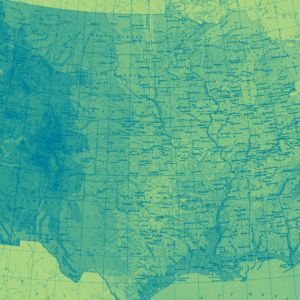
When Death Comes: An Oncology Nurse Finds Solace in Mary Oliver
Nina Solis on Making Peace with the Unknown
Instructions for living a life:
Pay attention.
Be astonished.
Tell about it.–Mary Oliver, “Sometimes”
*
When I was a new-to-practice oncology nurse, I was a walking, talking ball of anxiety. There were endless tasks to perfect, like memorizing chemotherapy regimens, monitoring a patient during a stem cell infusion, and recognizing clinical emergencies like septic shock or hemorrhagic stroke before they progressed past the point of intervention. I quickly learned that working with cancer patients required a sharp attention to detail and an almost exhausting level of stoicism. But above all else, my greatest fear stemmed from knowing I’d eventually have a patient die under my care.
I was overwhelmed with uncertainty and dreaded the inevitable. One day, I’d have to coordinate hospice care, communicate with distraught family members, perform post-mortem tasks, and zip a body bag shut. During my three months of orientation, I asked every experienced nurse I knew to share insights and wisdom on death and dying. What if the person is suffering? How can I tell if someone is close to the end? What am I supposed to do once it’s over? In many cases, death is expected, and—from what I understood, reading from the tiny notepad I kept with my colleagues’ answers—my only real responsibility was to keep them comfortable while they are passing away.
However, sometimes death comes unexpectedly. The vital sign machine blinks its red “abnormal parameter” alarm, or the unit telemetry monitor starts beeping, or you hear a loud, gasping noise from down the hall before someone runs in and discovers the patient to be pulseless. In those cases, depending on a person’s “Code Status,” my team has to figure out what to do next. If the patient legally decided to have a warning banner on their medical record saying “Do Not Resuscitate,” we don’t intervene medically, and instead notify their family of the passing. However, if their chart has a banner saying “Full Code,” we immediately start CPR and other life saving interventions. In these situations, an emergency call is paged over the hospital loudspeakers. A team of nurses, anesthesiologists, pharmacists, doctors and advanced care providers sprint to the bedside, and so begins the carefully orchestrated task of attempting to bring someone back to life.
Scary, I know.
In an effort to calm my anxieties, I sought comfort in reading on my days off. While browsing a bookstore, I came across a collection of prose called Upstream. I knew nothing about the author, and truly only picked up the book because I loved the cover art. From this serendipitous discovery, I was introduced to the writer and poet Mary Oliver, and her life-changing work.
Was it what she imagined, the cottage of darkness? Did she have something else she wanted to say? Was she afraid?
Her prose and poetry resonated with me in such an indescribably strong way, and learning about her personal life made the experience even more meaningful. I identified with her complicated upbringing, her queerness, her love and worship of nature, but most of all, the way she used words to navigate hardship. Unsurprisingly, I was most drawn to her poems and essays on the topics of life and death. Her curiosity wove in and out of my own, and in much of my free time I found her words standing alone, like a bright neon sign, in the dark space of my wondering.
When death comes
like the hungry bear in autumn;
when death comes and takes all the bright coins from his purse
to buy me, and snaps the purse shut;
when death comes
like the measle-pox
when death comes
like an iceberg between the shoulder blades,
I want to step through the door full of curiosity, wondering:
what is it going to be like, that cottage of darkness?
(“When Death Comes”)
Despite my dutiful note-taking and mental preparation, the fateful day of my first patient death came to me in an unexpected way. I had been off orientation for about six months, working as a nurse for nine in total, which was a surprisingly long time to go without a Code or patient death on my floor. Even though I was growing more comfortable in my role, the pestering worries circled in my brain, tapping on the walls of the tight container I kept them in. Will it be too overwhelming? Am I prepared? Is anyone, ever?
…Will the garden grow, will the rivers
flow in the right direction, will the earth turn
as it was taught, and if not how shall
I correct it?
(“I Worried”)
I was on an overnight rotation, getting ready for a stretch of multiple shifts in a row. When I came in at 6:30 pm to look up my patient assignment, my heart sank. A small summary of one patient’s daily events were highlighted on the right side of the screen, and I skimmed and scrolled to find more information: extensive treatment history for Leukemia, now internally bleeding, multiple failed interventions, transitioning to comfort care. I found the dayshift nurse and got a report from her explaining the patient’s situation. L had extensive disease, a low platelet count, and was uncontrollably bleeding into her abdomen. That morning, a team of providers had explained to her that surgery was not an option, and that unfortunately there was nothing more that could be done.
“The last time they checked her bloodwork, her hemoglobin was unbelievably low,” the dayshift nurse started, “She looks so pale right now. I wouldn’t be surprised if it drops to 1 by the end of the night.”
If God exists he isn’t just butter and good luck.
He’s also the tick that killed my wonderful dog Luke.
Said the river: imagine everything you can imagine, then keep on going.
(“At the River Clarion”)
When I walked into the room to check on the family, I was surprised to see L sitting up in bed, smiling at me. I half expected her to be on the brink of death already, drained and unable to speak—but there she was, quietly introducing herself. I met her sister and husband, who told me they would be staying in the room overnight.
She helped me realize that despite all the fear I’d held surrounding the end of a life, it’s possible to make peace with the inevitable unknown.
I quickly discovered L’s dynamic personality when she clearly laid out the expectations of her demise. Since hearing the news of her prognosis, she had begun to carefully and purposefully orchestrate her own dying process. She had a list of things she wanted in place, including keeping her family close by, and to be in as little pain as possible. The first mission I dedicated myself to was securing a bag of IV morphine to begin its slow drip before the night was through. She might have been terrified, as I assume anyone would be, but somehow she held up her head that night. L radiated an air of calm as I started the IV pump. She seemed at peace, sure of herself, prepared.
As the hours passed and L became too lethargic to keep up conversation, I spent more time talking with her husband and sister. Her sister told me stories about L’s life, her personality, her love of reading; and at one point mentioned that she wanted to read to L while she slept. We struck up a conversation about creative writing and poetry, and found we had similar taste. L’s sister pulled out her phone to take note of my recommendations. The first poem that came to mind was “Don’t Hesitate,” by Mary Oliver of course.
If you suddenly and unexpectedly feel joy,
don’t hesitate. Give in to it. There are plenty
of lives and whole towns destroyed or about
to be. We are not wise, and not very often
kind. And much can never be redeemed.
Still, life has some possibility left. Perhaps this
is its way of fighting back, that sometimes
something happens better than all the riches
or power in the world. It could be anything,
but very likely you notice it in the instant
when love begins. Anyway, that’s often the
case. Anyway, whatever it is, don’t be afraid
of its plenty. Joy is not made to be a crumb.
Only a few months after I started my job, Mary Oliver died of lymphoma. This only added to the strangely long list of things that connected us.
I was at work the night I learned of her death, and something seemed so moving, so pressing about the announcement. After caring for so many lymphoma patients myself, I could so clearly picture what she may have looked like, how many treatments she had available to her, the side effects she could have experienced, and how her illness probably had progressed. Maybe she had scarred and blistered skin from radiation, or became weak and lost her hair from multiple cycles of chemo—or maybe she had opted for hospice care in the beginning, and chose to go without medical intervention.
In between trying to imagine what she may have been physically experiencing, my mind searched for an answer as to what she was feeling during the transition. Was it what she imagined, the cottage of darkness? Did she have something else she wanted to say? Was she afraid?
When it’s over, I want to say all my life
I was a bride married to amazement.
I was the bridegroom, taking the world into my arms.
When it’s over, I don’t want to wonder
if I have made of my life something particular, and real.
I don’t want to find myself sighing and frightened,
or full of argument.
I don’t want to end up simply having visited this world.
(“When Death Comes”)
As the night went on, L became more pale and somnolent as her hemoglobin count dropped. Her full-sentence descriptions of pain became non-verbal cues, and before I knew it she was unwavering in her deep sleep. While she lay between us, L’s sister, husband, and I talked about Mary Oliver’s writing for a long time. I was amazed that they loved her poetry just as much as I did, and continually astonished that all of Mary’s work seemed so relevant in my life. Her observations of humanity, connectedness, and a fluid higher power came together in those quiet moments standing in L’s hospital room. Mary saw the world for exactly what it is—more deep and meaningful than any of us generally believe it to be. L and her family’s ability to connect, flow and move forward with me that night in early May is evidence enough.
We all become soft again, child-like, unaffected.
In the morning, I left work thinking that L would be gone by mid-day, but when I clocked in for my second overnight shift, I saw that she was once again assigned to me. When I walked into the room to assess her, her family looked calm and exhausted, and L was barely hanging on.
When you watch someone slowly die, there are noticeable phases the body goes through. Blood doesn’t circulate effectively to the limbs, so their hands and feet become cool to touch. Feet can get “mottled” (wrinkly). Breathing can look like gasping, the whole body moving with each inhale. When it’s really close to the end, those energy-depleting breaths usually become quiet and shallow, while all the muscles in their face relax, sinking down.
We all become soft again, child-like, unaffected.
At around 9:00 pm, I lightly knocked on the door of L’s room. I peeked inside to see her sister and husband on each side of the bed, holding her hands and stroking her face.
Her sister turned to me and whispered, “She’s gone.”
To live in this world
you must be able
to do three things:
to love what is mortal;
to hold it
against your bones knowing
your own life depends on it;
and, when the time comes to let it go,
to let it go.
(“In Blackwater Woods”)
The rest of the night, I followed the carefully laid out instructions for post-mortem care. I called the nurse practitioner on service to officially declare L dead, called the chaplain to offer support if needed, and gave the family about two hours to say their final goodbyes and gather their belongings. Although L’s husband let himself cry, her sister never shed a tear. She looked moved and somber, but also relieved and proud of how it all happened. Perhaps this air of calm runs in the family.
“I’m so sorry for your loss,” I said, hugging L’s sister, “I can tell that she was a really special person.”
She smiled, looking at L, “She really was. And thank you so much for the recommendations. I was reading to her as she passed, and one of the poems I read was ‘Don’t Hesitate.’ I really loved that one.”
Sometimes we get this sudden urge to look up before realizing that another person is staring at us, or just seem to know when someone walks up behind us on the sidewalk. There’s a kind of energy to other people that enables spatial awareness—but when you are in a room with a lifeless body, that feeling becomes noticeably absent for the first time. As I looked down at L, motionless and cool, it was hard to imagine that this was the same woman who had bravely declared her wishes to me the night prior. In her place there was a patch of negative space; her entire presence had evaporated.
This body had been in the room all along, but L was nowhere to be found.
When we die the body breaks open
like a river;
the old body goes on, climbing the hill.
(“The Deer”)
My coworkers helped me shut off L’s morphine drip, remove her IV, and place her in a white body bag in preparation for the morgue. We quietly and respectfully performed our work in about ten minutes. The whole time, my mind was empty. It didn’t fully hit me until I had left the room how powerful an experience all of it was. I couldn’t help but feel grateful to be a part of such a beautiful transition. Even though I recognized that other deaths I might experience would likely not be as positive or easygoing as my first, I no longer felt terrified of the event itself.
L taught me about the transformative gifts we receive through acceptance. Just like Mary Oliver so often encouraged, L didn’t try to push the truth away—instead, she welcomed it, looked at it with curiosity and patience, and honored what she truly needed in those final moments. She helped me realize that despite all the fear I’d held surrounding the end of a life, it’s possible to make peace with the inevitable unknown.
L left this world exactly as she wanted, with a quiet and dignified death.
It’s more than bones.
It’s more than the delicate wrist with it’s personal pulse.
It’s more than the beating of the single heart.
It’s praising.
It’s giving until the giving feels like receiving.
You have a life—just imagine that!
You have this day, and maybe another, and maybe
still another.
(“To Begin With, The Sweet Grass”)
Nina Solis
Nina Solis is a hematology-oncology RN and emerging writer based in Philadelphia. She graduated from the University of Pennsylvania in 2018 as a first-generation college student, with a major in Nursing and minor in Creative Writing. Currently she enjoys playing guitar, running, and genuine human connection (at least 6-feet apart). You can find her @ninasolis_rn on Twitter and Instagram.












